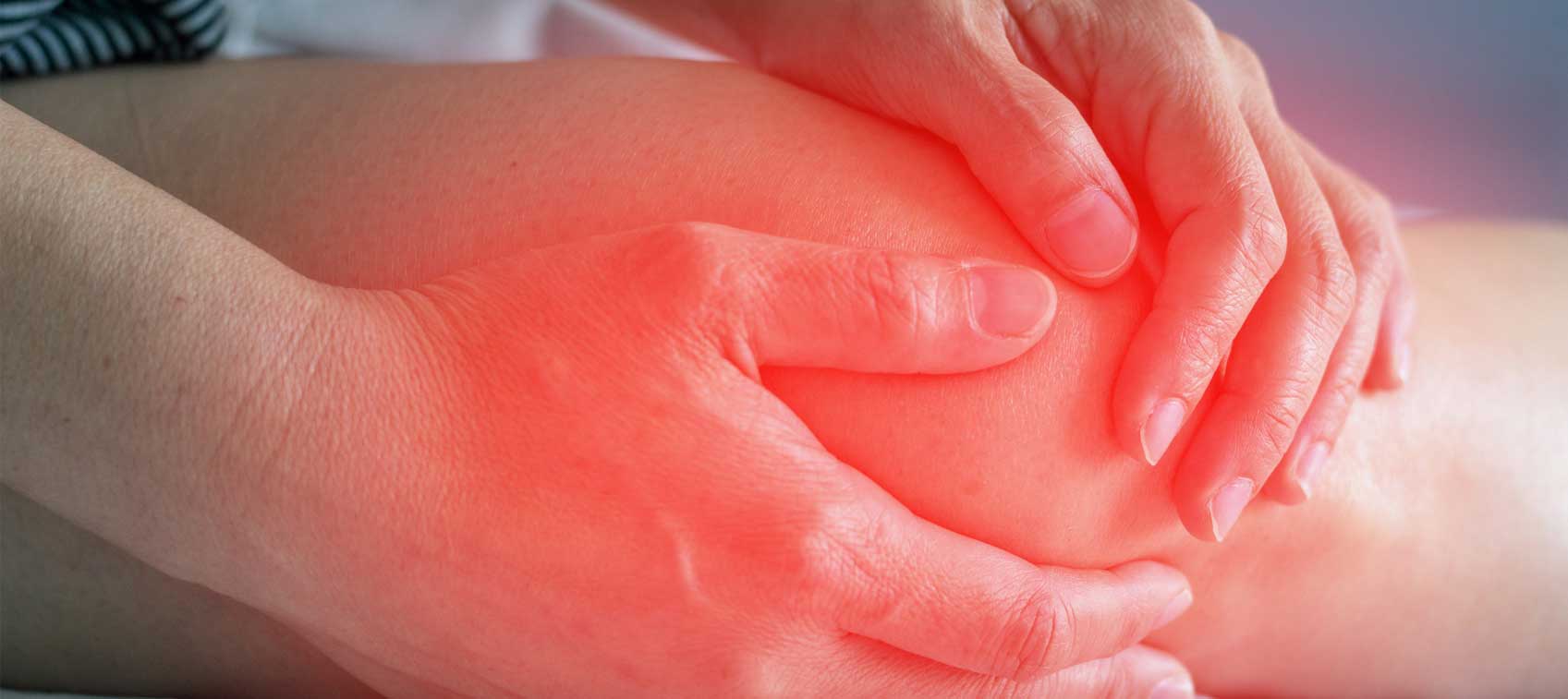
Inflammation is the immune system’s response to injury (cuts, scrapes, sprains, etc.) or “invaders” such as pathogenic organisms (viruses, bacteria, etc.) and irritants (allergens like pollen and dander). It is part of our body’s natural defense mechanism and healing process.
These days, we hear a lot about inflammation as it is associated with the development of many different diseases. But while inflammation has gotten a bad rap, it’s important to understand that it’s not always bad for us.
Controlled and temporary (acute) inflammation is a necessary part of survival. However, uncontrolled and chronic inflammation can lead to unnecessary tissue destruction as well as a long list of serious diseases, including heart disease, diabetes, kidney and liver problems, and even cancer.
Here’s more of what you need to know about both forms of inflammation.
Acute Inflammation
Acute inflammation is often associated with five cardinal signs:
- Redness, due to increased blood flow to the area;
- Heat, which is also related to increased blood flow;
- Swelling, which occurs as fluid builds up in the area;
- Pain, which is a result of chemicals released to the injury site to stimulate nerve endings;
- Loss of function in the area due to the above events.
Sometimes all of these signs aren’t present and the inflammation will be “silent,” and you just feel tired, achy, sick, and maybe experience a fever.
Acute inflammation typically lasts only a few days to possibly a week or so. Once the underlying problem is resolved, the inflammation goes away and things go back to normal.
Best Natural Supplements for Acute Inflammation
There are things you can do to speed up healing so that the inflammation can dissipate more quickly. Keep in mind, since acute inflammation is part of the healing process, the goal isn’t really to stop it, but rather speed it up to help shorten the period of inflammation.
Elevating the affected area and applying ice can prevent further swelling and pressure, which can often decrease pain. Increasing your water consumption can also speed up the healing process.
Numerous herbs can help fight inflammation, too. Some of these include:
- Capsaicin
- Turmeric/curcumin
- Devil’s claw
- Ginger
- Willow bark extract or tea
- Feverfew
- Propolis
- Cinnamon
- Cloves
- Oregano
- Nutmeg
- Cannabis or hemp extracts (CBD)
- Celery seed powder extract or tea
Other natural anti-inflammatories include:
- Essential oils of eucalyptus, peppermint, rosemary, and lavender
- Bromelain—the enzyme extracted from the pineapple plant
- Tart (Montmorency) cherries, which contain polyphenols and have been found to be more effective than aspirin for blocking inflammation
Chronic Inflammation
Unlike acute inflammation, chronic inflammation can last for months or years. It is often linked to an underlying disease process.
Symptoms will vary depending on the disease, but chronic inflammation will almost always involve fatigue and pain.
Chronic inflammation occurs when some physical issue triggers an immune response. It doesn’t necessarily involve an infection, but an underlying infection can be a cause. Since it is so problematic, the goal is usually to correct and eliminate the underlying factor(s) causing the inflammation, whether it’s pathogens, irritants, or repeated injury to body tissues.
One common example of a chronic infection causing chronic inflammation/pain is periodontal disease. A gum infection constantly releases pathogenic bacteria and toxins into the bloodstream. These travel throughout the body and can further damage areas like the heart and kidneys.
It is well-established that certain factors (like periodontal disease) greatly increase the risk of chronic inflammation. Here’s a short list of other signs/factors that can be indicators that you’re suffering from chronic inflammation:
- A “spare tire” or “beer belly” around the waist. Fat cells that accumulate around the abdominal area produce inflammatory chemicals. The more belly fat you have, the greater the amount of these chemicals.
- High blood sugar increases the numbers of inflammatory proteins called cytokines in the bloodstream. It also leads to an increase in advanced glycation end products (AGEs), which are pro-inflammatory and destructive to normal cells.
- Chronic fatigue is often a sign that the “energy production factories” in your cells are “sick” and not working well. This can be from a long-term viral, fungal, or bacterial infection, hormonal imbalance, or nutritional deficiency.
- Digestive problems like chronic indigestion, gas, bloating, ulcers, constipation, diarrhea, ulcerative colitis, and Crohn’s disease are often the result of inadequate digestive enzymes, an imbalance of bacteria in the intestine, or a leaky gut—where the walls of the intestine are damaged and allow harmful bacteria and pathogens to enter the bloodstream. Any of these can create chronic inflammation and pain throughout the body.
- Asthma, hay fever, sinusitis and/or allergies can be a sign of chronic inflammation in the respiratory tract.
- Skin diseases such as eczema or psoriasis are inflammatory conditions that are often related to autoimmune disorders, hormonal imbalances, or a manifestation of digestive, cardiac, or blood sugar handling issues.
- Depression is often a sign of chronic inflammatory issues that influence brain chemistry. An imbalance of the bacterial flora in the intestine has been shown to trigger the release of chemicals that directly alter brain function, feelings, and mood.
- Chronic joint pain or rheumatoid arthritis is indicative of chronic inflammation as well.
Natural Methods to Reduce Chronic Inflammation
Like with acute inflammation, there are natural methods to reduce chronic inflammation throughout the body. However, most of these suggestions for lessening chronic inflammation involve a broader lifestyle-based approach. It takes a little more effort and dedication, but the end result is definitely worth it.
- Repair any damage to the intestinal tract by replenishing it beneficial bacteria. This can be accomplished with bone broth, fermented foods and drinks, and a daily, high-quality probiotic supplement. It is also beneficial to gradually include high-fiber vegetables. Beneficial bacteria in the lower bowel “feed” on the fibers in vegetables that we can’t digest.
- Avoid sugar and high-fructose corn syrup, which are pro-inflammatory compounds. Consuming them does nothing but further increase inflammation. Excess sugar is converted to fat and stored in the body. As I mentioned earlier, excess fat cells produce inflammatory compounds and have been shown to lead to serious diseases like diabetes, heart disease, and cancer. Also avoid sodas like the plague. They contain compounds that acidify the system, and excess acidity promotes inflammation.
- Avoid altered and artificial fats such as trans fats, vegetable oils, and fried foods.
- Consume a wider variety of spices (like those mentioned above) along with seeds (chia, flax), nuts, and whole fruits. They all contain various antioxidants and compounds that help reduce inflammation.
- Eat fatty cold-water fish like salmon and mackerel. These fish are rich in omega-3 fatty acids and numerous studies confirm they reduce inflammation.
- Increase your intake of cruciferous vegetables, which are excellent at modulating inflammation in the body. The cruciferous family includes sulfur-containing vegetables like cabbage, broccoli, Bok choy, Brussels sprouts, kale, and cauliflower.
- Certain vitamins and minerals have also been shown to significantly lessen inflammation. These include quercetin (a flavonoid found in the outer layer of onions), niacin, vitamins C and D, and zinc.


